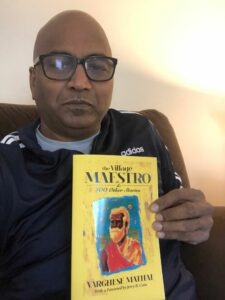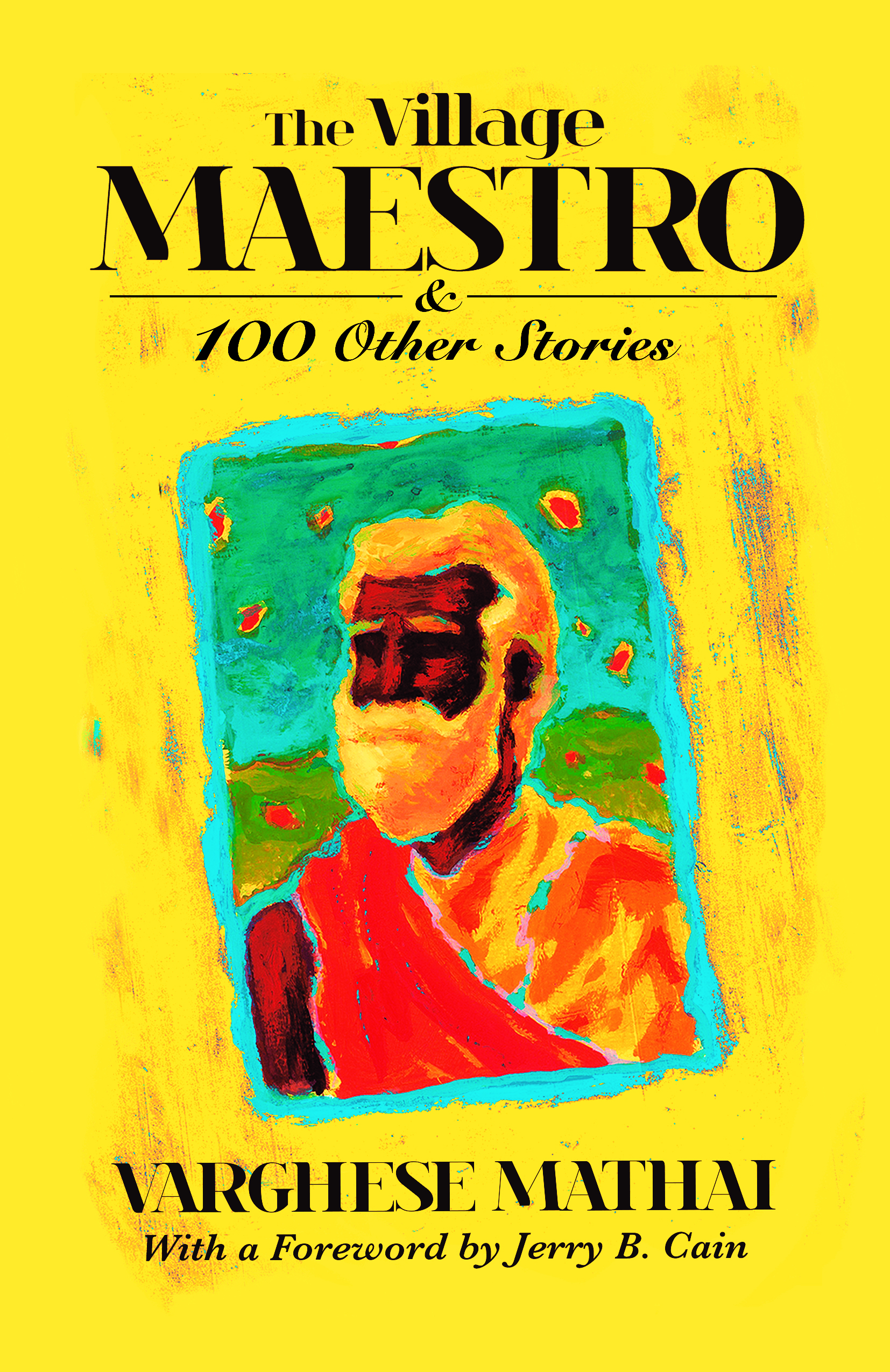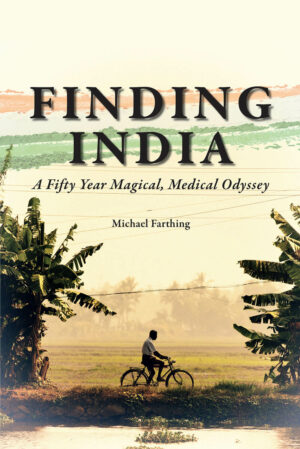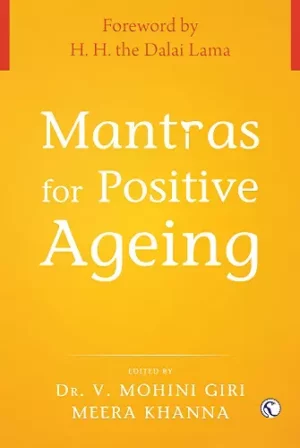Reviews, Interviews, and Mentions
“I have just finished reading this wonderful book.
Why did it take me so long?
Because I read only one or two stories per sitting, over lunch – I most often dine alone in my office for just 10-15 minutes.
So I was able to savor the stories as they should be read: pondered for minutes, hours, or sometimes days after reading.
I enjoyed them very much.
I shall miss sharing my lunch moments with these words of wisdom”
– James M. Tour, Ph.D., FRSC, NAI, NAE
T. T. and W. F. Chao Professor of Chemistry
Professor of Computer Science
Professor of Materials Science and NanoEngineering
NanoCarbon Center
RICE UNIVERSITY, USA
June the 19th, 2024
_
“A marvelous book“, says Mark Lardas, (engineer, freelance writer, hstorian, and model-maker, from League City, TX, USA), in his review of the book: https://scanalyst.fourmilab.ch/t/this-weeks-book-review-the-village-maestro/3864
_
Reviewed by Lamat R. Hasan in The Hindustan Times on July the 6th, 2023
__

“Fell in love with it. Please compliment the author”
– Sunil Roberts Vuppula
_
Review by Times of India’s Senior Assistant Editor, John Cheeran: https://johncheeran.substack.com/p/when-mr-jacob-met-prime-minister
_
“The deeper I get into the text, the more impressed I am. Each chapter is a new layer of truth” – Richard A. Davis, author of Internal Affairs: How to mend a wounded soul and of God, I don’t Get It: Critical thinking on critical questions
_
“Through his quick, masterful tales, Varghese Mathai engages us in pondering an array of life lessons. But don’t get fooled by the brevity of the encounter–the stories may be very short, yet you’ll find yourself reflecting on them for years to come. Great teachers have a way of starting a story that our minds don’t want to end–even when we’ve finished the course or closed the book!” – Joyce Weinsheimer, Georgia Institute of Technology, USA
_
“Varghese Mathai’s powerful series of morality tales captured my attention and interest in an instant. A delightfully deep message is packed into the two-minute or three-minute bite-sized bits that are a compelling read” – Curtis Hill, Former Attorney General , State of Indiana
_
“The pleasant suspense common to all of these micro-stories enhances their reading pleasure. As the distilled wisdom in each piece comes alive, you will experience your own little epiphany and be surprised by joy” – Canon Professor George Iype Kovoor, Fellow of Berkley College, Yale University; Chaplain To H.M. The Queen
_
“This collection of stories had its beginning for me, many decades ago, in Dr. Mathai’s classroom. He began each class by telling a short story, a parable of sorts. These stories were brief, but captivating, and featured rich and luminous characters. I grew to anticipate those moments. If another student or I missed a class, this was the inevitable question asked: “What was his story?”
Shortly after graduation, I asked Dr. Mathai if those “classroom stories” existed in a written compilation. Not yet, he said, but willingly sent a draft of one of my favorites: ‘Two Jewish Brothers’ (included in this volume). It is a story that resonated with me when I first heard it, and has been a reminder to me about a life lived with love, humility, and honor. I have referenced it frequently over the years, and retold it many times.
A narrative told artfully is powerful, and Dr. Mathai’s concise and gifted story telling style brought these tales to life. Inside these pages you will find common folk who are shining jewels. The parables speak in a powerful voice about the simple, profound, and meaningful beauty of human relationships, about things of true value, and about the gift of life. I’m happy to see that this collection of insightful stories will finally be reaching a larger audience. I believe they will be read and reread, time and time again” – Patrick Endres, Wildlife Photographer, Alaska, USA
“…piques interest…literary skill… exceptional… inspirational knowledge … instruction and inspiration ….. Can’t put Maestro down” – Richard Newkirk, Brain Expert, USA
“From the moment you read the first sentence of each story, you find yourself immersed in a different world. Each parable contains a universe in its core with pithy learning embedded in its fabric. In a world that is constantly searching for meaning, these stories provide one with a sense of spiritual relief and intuitive wisdom; an intangible feeling that stays with you long after the story is finished” – Soven Trehan, Communication Specialist – Public Affairs & Communications, American Express
“Dr. Mathai’s college classes always began with a brief, thought-provoking story, packed with wisdom and insight. These vignettes from history, science, literature, and folklore are now available to those not lucky enough to have had him as a professor, but fortunate to have found this judicious book of anecdotes and corresponding life lessons. Brimming with astute narratives, the reader is afforded brief, brilliant tales that speak to the soul. Wise vignettes from history and literature give insight into life lessons for today’s modern world” – Sarah Bergstedt, School Counselor, Minneapolis
“Engaging, wide-ranging, and often witty – wise and pithy” – Kevin Crossley-Holland, poet and prize-winning author
Click here for a full Book Review by Rashmi Narzary (Award-winner from the Sahitya Akademi – the Indian Academy of Letters)
And here for an interview with Varghese: https://www.talkingbooksthewiseowl.art/talking-books-varghese-mathai
___






Admin –
Reviewed by Lamat R. Hasan in The Hindustan Times on July the 6h, 2023: https://www.hindustantimes.com/books/review-the-village-maestro-100-other-stories-by-varghese-mathai-101688643190753.html
Admin –
Reviewed by The Times of India’s Senior Assistant Editor, John Cheeran: https://johncheeran.substack.com/p/when-mr-jacob-met-prime-minister
Admin –
Reviewed by Sahitya Akademi prize-winner, Rashmi Narzary: https://pipparannbooks.com/the-village-maestro-100-other-stories/
Prabhu Guptara –
THE CLASSROOM AS A NURSERY OF STORIES
The Village Maestro and 100 Other Stories by Varghese Mathai, Pippa Rann Books & Media (2022), pages 292, Rs. 599
This is the sort of book I wish I’d had in my hand half a century ago. In that event, I’d have been more creative and humane in my approach to teaching, and more holistic in my professional life.
A sure sign of sincerity and earnestness in pursuing one’s chosen vocation is what I term the by-product quotient. That is to say, in the very process of doing one’s best for, in Mathai’s case, his immediate students, something of enduring value is generated for the public at large as well. The more significantly one serves in the given context, the more universally one contributes. Jesus embedded this insight in a parable: the parable of the mustard seed, symbolising an aspect of the Kingdom of God. The seed sprouts, grows. The by-product of that growth is that the tree becomes home to the ‘birds of the air’- metaphorically denoting a scope nowhere evident in the cycle of its growth.
The east and the west meet in this collection of short and crisply organized stories, anecdotes, and historical events. The parabolic mode of presenting ideas and insights is characteristic of the East, though not exclusive to it. But the substance of these stories is derived from sources eastern as well as western. The effort the author has invested in harvesting illustrative materials from a wide-ranging assortment of sources bespeaks an approach to teaching that goes beyond the perfunctory. The book makes refreshing and regaling reading for that reason alone.
But the value of the book goes beyond that. It demonstrates the feasibility of, and gain in, bridging the learning milieu with the larger context. If education is, as the oft-repeated and much-neglected truism states, a celebration of awareness, surely Mathai’s way of connecting classrooms to diverse contexts and traditions, ages and pages, is the way to go about it.
I won’t be surprised if the reader of The Village Maestro and 100 Other Stories is reminded at times of John Donne, the English metaphysical poet. Somewhat in the vein of Donne’s conceits, Mathai yokes together, though with less creative violence, the near and the far without making this marriage seem far-fetched. Perhaps an illustration will help to see this better. In story number 44, the author connects an observation by a contemporary doctor –‘The sign of perfect health in a body is that no part of it would draw attention to itself’- to King Solomon, the builder of the famed Jerusalem temple of pretty ancient vintage: in particular, the emphasis he laid on ensuring that the construction work was accomplished, free of any tension between parts and departments. After this unexpected, but apposite tour, the author brings the reader back to the discordant awkwardness with which some individuals draw attention to themselves.
In story number 47, likewise, the author introduces Joseph Strauss, the legendary builder of the Golden Gate Bridge, only to guide the reader to frontiers of metaphoric bridge-building: bridges to fortune, to learning, to friendships, and so on. Scientific bridges connect solutions to needs. Newton, Robert Hooke, Isaac Newton, Moses, Miletus, Confucius, Chaucer, all come into the view in this pantheon of bridge-builders. The academic value of establishing such surprising and stimulating interconnectivities is too manifest to need elaboration.
I think it was Carlyle who said that the British school system was designed to produce disciples, not thinkers. It is obvious that Mathai wanted his students to think, rather than swallow and regurgitate. Nothing else explains the keenness he shows, through these stories, to smuggle in insights for his students; an effort all the more commendable in a materialistic and utilitarian age. Perhaps he was fortunate in this respect. I doubt if he would have found comparable appreciation in a ‘drilled-solely-for-examinations’ approach that prevails in the Indian context, especially at the undergraduate level.
Mathai’s stories abound in food for thought. I need to offer only an illustration or two in this regard. Chapter 16 narrates a story, one of Jewish extraction, of self-effacing brotherly love. The author concludes the narration in a sentence that leaves the reader thinking for long thereafter. ‘Jewish tradition says that the spot where the brothers met is the site that Solomon chose to build the Temple of God’. A seemingly matter-of-fact statement like that affords the reader a world of reflections in the Indian context, where much fraternal blood is shed for the sake of temples and in the name of God.
In story number 22, likewise, the author highlights the contrast, almost universally overlooked, between the pride and pomp on display on the surface of the earth and the subterranean instability on which this ‘vanity fair’ is erected, reminiscent of the parabolic Babel Tower. ‘Isn’t it ironic,’ the author asks, ‘that these great structures stand on sliding plates of earth’?
Story number 35 makes an unpretentious beginning – with a spider, if you don’t mind. But the ‘over-performing spider’ then becomes the wake-up call to the reader about the immense potencies and talents that remain unused or under-used in him or her.
In story number 43, the reader is challenged, via Dr. Paul Brand, to realize the need to be sensitive.
Story number 49 –about money- hits the reader with a sledge-hammer. ‘When money is more fictitious than fiction,’ Mathai waxes sermonic, ‘what power does it have to hurt us?’
The author is not content with offering insights. He sprinkles these offerings with surprises as well. Whether it is the story of the modern-day cannibal (story 17), or of the lion that was ‘defeated not physically but psychologically’ (story 20), or of the diminutive village maestro who remains apathetic –in the Greeks sense- towards the expropriation of his land by a greedy neighbour (story 15), or of the ‘Graceful Curve’ –“that inward sinuous curve which makes the human figure so graceful” (story 26), the surprise element would have been felt keenly by the author’s North American students as the immediate recipients of these stories. They would have pulled his students in a direction at variance with, if not altogether opposite to, the drift of their cultural formation.
In the academic tradition to which I belonged for the better part of my life – St. Stephen’s College, Delhi- it was deemed axiomatic that ‘real education happened outside classrooms’. This deliberately provocative formulation was meant to emphasize the need to complement and supplement classroom learning with whatever was happening in the larger milieu. Reading The Village Maestro and 100 Other Stories made me re-visit that aphorism. Well, classrooms can expand beyond the boundaries of syllabus! A teacher has to deal with the prescribed syllabus, but he is not required to be a mere servant of the syllabus. It is often the larger-than-the syllabus journeys and explorations that endure with students beyond the portals of formal education. Such a liberated teacher the author was, and that adds value to what he shares with the reader through this enjoyable collection.
One question that pursued me while reading this book: ‘How did Mathai’s students encounter these stories?’ The insights that many of them offered did not blend readily with their worldview. Were these stories followed by spirited discussions? If they were, of what tone and temper? Or did Mathai’s listeners, like those of the Ancient Mariner, merely remain spell-bound; a few of them, like those of Coleridge’s Mariner going home each day ‘sadder and wiser’?
athai has a lithe way of narrating stories which is eminently readable – and that notwithstanding the fact that his style has a subtle proclivity towards the Miltonic. His substance and style blend, investing each story with freshness and depth, whether in the matter of his walking around the fig-tree ‘like a tickled squirrel’ (p51), or the elderly priest ‘quivering in disbelief’ (p171), or the alliterative self-admonition for letting himself be duped by the ‘beguiling blanket of green’ (p52), or a pithy but apposite statement like ‘. . . but without value back up, paper (money) is pulp fiction’ (p 92), or sentences of greater vigour like (while talking of mothers), ‘Mothers are major power brokers. They have disabled engines of oppression and altered history; (p 134), or the more philosophical, ‘We may know when and where the peril could strike, but a prickly pride propels us toward peril, even at the point of no return’ (p 188), and much else besides. The perusal of this classroom harvest leaves us with unforgettable stylistic vignettes that could not have failed to thrill Mathai’s original listeners.
I would urge grandparents, if not parents, to equip themselves with this delectable collection of stories, if they wish to be better bridged, as Mathai would say, with their grandchildren. Grandparents, rather than parents for the reason, as a Class 8 boy once wrote in a Class composition, that ‘grandparents, not parents, have time’. Thanks to Walt Disney, children today grow up obese on cartoons and famished for stories. So long as we remain human, the hunger for stories will stay perennial. Tell the children in your vicinity these stories. They will love you; for, after all, they made two generations of fairly demanding young people love Mathai in a special sort of way.
I am richer for reading The Village Maestro and 100 Other Stories especially for two reasons. First, it has enlarged my repertoire of stories and equipped me better as a grandparent. Second, it has increased my respect for Mathai, who has been a personal friend. For one as unpretentious as this author is in real life, it takes something of this flavour and finesse to let even his close friends know the hidden treasure he is.
__
Dr. Valson Thampu was a member of the faculty in St. Stephen’s College, Delhi, and served as its Principal from 2008 – 2016. During this time, his interests grew, blossomed, and covered the Indian sub-continent, a process of growth in which he followed the footsteps of an illustrious predecessor, C. F. Andrews, who was a close associate of Mahatma Gandhi and Gurudev Tagore.
Prize-winning translations from Malayalam are among his books, alongside many books written originally in English, including the latest – Beyond Religion: Imaging A New Humanity (published by Pippa Rann Books in 2021).